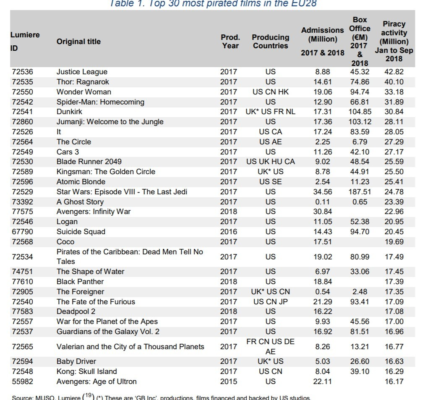How Domain Takedowns Are Shaping the Fight Against Online Piracy
Taking down a pirate website is no easy task, but one of the most effective—albeit temporary—methods is disabling its domain name. Historically, domain registries have been hesitant to intervene, but with the right approach, action can be taken. This week, Dutch anti-piracy group BREIN announced that its complaints prompted both the .nl and .eu domain registries to take action against several pirate websites. However, a closer examination reveals that these suspensions had little to do with copyright infringement.
Domain Name Takedowns as an Anti-Piracy Tactic
For years, entertainment industry groups have urged domain registries to help combat piracy. The Motion Picture Association (MPA) has previously established agreements with registries, allowing them to act as “trusted notifiers” to flag pirate domains. However, not all registries have been willing to comply.
For instance, the Public Interest Registry (PIR), which manages the .org domain, has refused to take action against The Pirate Bay, emphasizing the importance of a “free, open, safe, and secure internet.” Despite this reluctance, pressure continues to build. Some domain extensions, such as .cc, .io, and .tv, have even been branded as “notorious piracy markets” due to their perceived inaction.
Dutch and European Registries Take Action
Despite ongoing debates, some registries have started to respond to complaints. This week, BREIN reported a significant victory in its anti-piracy efforts, revealing that the Dutch SIDN (.nl) and European EURid (.eu) registries had taken down multiple domains linked to pirate operations.
According to BREIN, SIDN targeted IPTV-related domains, including streamdeal.nl, iptvproviders.nl, omniptv.nl, and iptvstreamplus.nl. Meanwhile, EURid reportedly removed seven domains that provided access to pirated movies, music, books, and games. These sites were registered through proxy services, making it difficult to trace their true owners.
The True Reason Behind the Takedowns
While BREIN is celebrating these domain suspensions, the actual reason behind them is not what many might expect. Rather than being removed for copyright infringement, SIDN and EURid confirmed that the domains were suspended due to inaccurate WHOIS registration details—violating their respective terms of service.
Marnie van Duijnhoven, a spokesperson for SIDN, explained that the suspensions were the result of registrants failing to provide or verify accurate information. Although BREIN’s complaints triggered these reviews, the final decision was based on registry policies rather than piracy-related concerns. EURid echoed a similar explanation, citing breaches of their registration rules as the reason for the domain removals.
BREIN’s Perspective: Different Justifications, Same Outcome
BREIN’s director, Bastiaan van Ramshorst, acknowledged that copyright infringement was not the official reason behind the takedowns. However, he pointed out that pirate sites often provide inaccurate WHOIS data to maintain anonymity. This, in turn, offers an alternative legal avenue for disabling their domains.
“Our goal remains the same: removing domains that facilitate large-scale copyright violations,” Van Ramshorst stated. “Whether it’s through copyright complaints or registration policy enforcement, the end result is the same.”
A Growing Trend in Domain Enforcement
It remains uncertain whether domain verification takedowns will become a widespread anti-piracy tactic. However, recent data suggests that this method may be more effective than traditional copyright-based complaints. SIDN’s latest transparency report reveals that it received just 39 copyright-related takedown requests in the first three quarters of the year. In contrast, over 5,000 domain suspension procedures were initiated under articles 16 and 18 of SIDN’s terms, which focus on inaccurate registrant information.
This shift in strategy underscores the changing landscape of online piracy enforcement. As direct copyright claims become increasingly complex due to legal challenges, enforcing registry compliance offers a viable alternative for disrupting pirate operations. Whether this method will have a lasting impact remains to be seen, but for now, BREIN appears to have found an effective workaround in its fight against online piracy.







